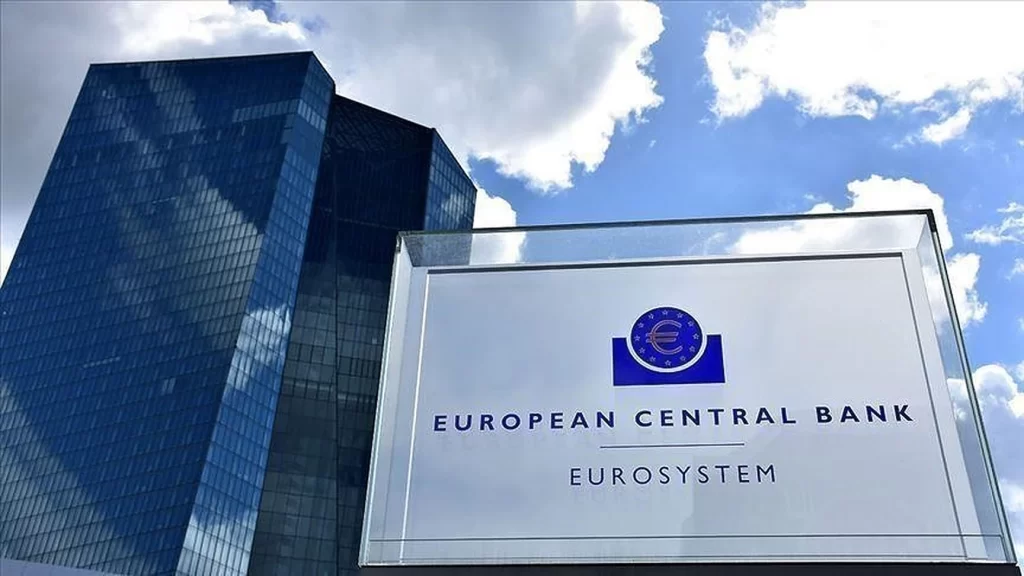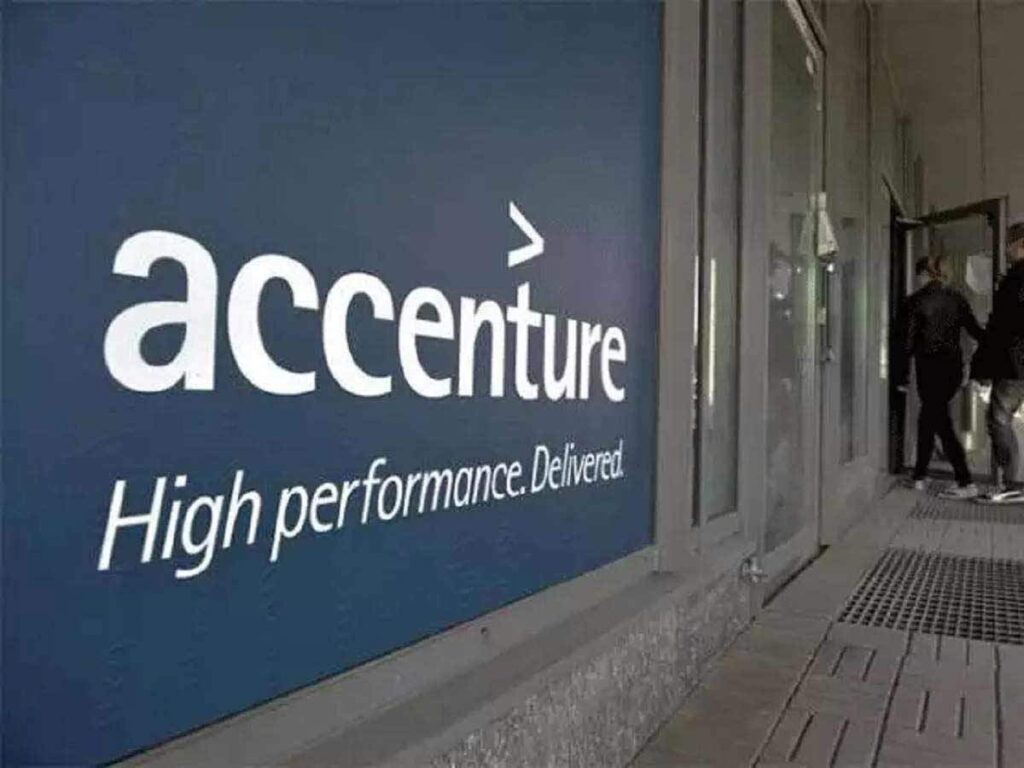Bitcoin mining continues to generate controversy due to its environmental impact, and a recent revelation by a Brooklyn bathhouse has sparked mixed reactions among users on social media.
The bathhouse, located in Brooklyn, New York, announced on Instagram and Twitter that it utilizes Bitcoin mining rigs to heat its spa facilities.
In a post made on June 21, the bathhouse explained its process in three steps: the Bitcoin mining rigs generate heat as a byproduct, the heat is then captured by heat exchangers, and finally, it is circulated to heat the venue’s pools.
Bitcoin mining involves the creation of valid blocks that record transactions on the blockchain, but it consumes a significant amount of energy, often derived from fossil fuels.
This high energy consumption contributes to carbon emissions, raising concerns about the environmental impact of Bitcoin mining.
A report from January 2022 estimated that the Bitcoin mining network emits 42 megatons of carbon dioxide annually, accounting for 0.08% of the world’s total production. Instagram users who follow the Bathhouse account expressed mixed opinions.
Some users, like Annalarranaga, voiced their concerns about who benefits from cryptocurrency mining and called for transparency.
Another user claimed that bathhouse customers preferred “pure, unadulterated heat” for their salt baths, rather than heat generated as a byproduct of mining.
However, some individuals reveled in the negative responses, while others welcomed the idea of using mining-generated heat to warm the pools.
The latter group saw it as an innovative way to reduce energy consumption. Despite the specific example of carbon-neutral Bitcoin mining provided by the bathhouse, concerns about the environmental impact of Bitcoin mining persist among certain individuals, leading to unfavorable reactions.
Interestingly, repurposing the heat generated by Bitcoin mining to save energy is not a new concept. In Europe, miners have found creative ways to recycle the heat produced during the mining process.
For instance, in Norway, a Bitcoin miner and data center named Kryptovault uses the hot air generated by mining rigs to dry chopped logs.
As the debate surrounding Bitcoin mining’s environmental impact rages on, the use of excess heat for other purposes serves as a potential solution to mitigate energy consumption and reduce carbon emissions.
However, addressing the concerns of those worried about the ecological consequences of Bitcoin mining remains crucial for the wider acceptance and sustainability of cryptocurrency.
Other Stories:
Accenture Announces $3 Billion AI Investment After Wave of Layoffs
Melanion Capital Launches Bitcoin Equities ETF on Euronext Amsterdam Stock Exchange
In a scathing speech, Fabio Panetta, an executive board member of the European Central Bank (ECB), expressed his belief that cryptocurrencies offer little more than a platform for gambling among investors. Panetta delivered his remarks during a panel at the Bank for International Settlements Annual Conference on June 23.
Panetta highlighted the decline of cryptocurrencies’ perception as a “robust store of value” since late 2021, when the total market capitalization plummeted by over $1 trillion. He attributed this loss of confidence to the highly volatile nature of crypto assets, suggesting that they are more suited for gambling activities than as a stable investment. He emphasized the need for global lawmakers to recognize this reality and treat cryptocurrencies accordingly.
The ECB official criticized the crypto ecosystem, describing it as “deleterious” and plagued by market failures and negative externalities. Panetta warned that without adequate regulatory measures in place, the industry is likely to face further market disruptions. He cautioned policymakers against supporting an industry that, in his view, has yet to deliver any societal benefits and is primarily seeking integration into the traditional financial system for legitimacy and advantage.
Panetta specifically criticized the security, scalability, and decentralization of crypto transactions, arguing that these characteristics are unattainable. He pointed to the immutability of blockchains as a negative aspect, citing instances where transactions cannot be reversed, such as the collapse of FTX and a recent lawsuit by the United States Securities and Exchange Commission against Binance. According to Panetta, these incidents represent fundamental shortcomings within the crypto ecosystem.
The ECB official reminded crypto enthusiasts that new technology does not eliminate financial risks. He used the analogy of pressing a balloon, suggesting that when pressure is applied on one side, it will eventually burst on the other side. Panetta warned that if a balloon is filled with hot air, it may rise temporarily but will ultimately burst.
It is worth noting that Panetta has previously supported aspects of the ECB’s exploration of a potential digital euro. He has also proposed the banning of crypto assets with excessive environmental impact as part of the ECB’s efforts to address environmental risks.
In conclusion, Fabio Panetta’s speech painted a bleak picture of the future of cryptocurrencies, portraying them as platforms for gambling with limited societal benefits.
He called for regulatory safeguards and criticized the perceived limitations and failures of the crypto ecosystem.
Other Stories:
SHIB Coin Prediction: Will Shiba Inu Coin Reach $1?
Accenture Announces $3 Billion AI Investment After Wave of Layoffs
FTX Files Lawsuit Seeking $700 Million from Former Associates and Affiliated Funds
Etherscan, a prominent Ethereum block explorer and analytics platform, made significant strides in the realm of artificial intelligence (AI) during the past week.
Among the notable developments were the launch of their AI-powered code reader and Polygon’s proposal for a zero-knowledge Ethereum Virtual Machine (zkEVM) upgrade to enhance protocol security.
Etherscan’s Code Reader is a groundbreaking tool introduced on June 19. Utilizing AI technology, it allows users to retrieve and interpret the source code of specific contract addresses.
By inputting a prompt, the Code Reader generates responses using OpenAI’s large language model, providing valuable insights into the contract’s source code files.
The tool’s functionalities encompass gaining a deeper understanding of contract code through AI-generated explanations, obtaining comprehensive lists of smart contract functions related to Ethereum data, and comprehending the contract’s interaction with decentralized applications.
Furthermore, users have the option to modify the source code directly within the user interface before sharing it with the AI.
In parallel, Polygon’s co-founder put forward a proposal for a zkEVM upgrade aimed at bolstering the security of the protocol.
The zkEVM upgrade leverages zero-knowledge proofs to enhance privacy and confidentiality, while simultaneously reducing transaction costs.
This development showcases the continuous efforts of blockchain platforms to improve their underlying technology and provide a more robust and secure environment for users.
Meanwhile, ZachXBT, a blockchain investigator, received substantial support from the crypto community in his ongoing legal battle. Binance CEO Changpeng Zhao joined the cause by donating to ZachXBT’s lawsuit fund, which has now surpassed $1 million.
The community-driven initiative aims to assist ZachXBT in defending himself against a defamation case filed by Jeffrey Huang, also known as MachiBigBrother on Twitter.
This display of solidarity among crypto personalities underscores the interconnectedness and collaborative nature of the industry.
These developments coincide with a bullish momentum across the decentralized finance (DeFi) market, led by Bitcoin’s resurgence.
The top 100 DeFi tokens broke free from a three-week-long bearish phase, experiencing substantial price surges throughout the week.
Most DeFi tokens traded in the green, signaling renewed optimism and investor confidence in the market.
In summary, Etherscan’s introduction of the AI-powered Code Reader, Polygon’s proposal for a zkEVM upgrade, and the support rallied behind ZachXBT’s legal battle have been the highlights of the past week in the DeFi ecosystem.
These advancements contribute to the growth, security, and innovation within the blockchain industry, setting the stage for further breakthroughs in the future.
Other Stories:
FTX Files Lawsuit Seeking $700 Million from Former Associates and Affiliated Funds
SHIB Coin Prediction: Will Shiba Inu Coin Reach $1?
Melanion Capital Launches Bitcoin Equities ETF on Euronext Amsterdam Stock Exchange
Coinbase has taken an unconventional legal approach in anticipation of a potential crackdown by the U.S. Securities and Exchange Commission (SEC).
Prior to the SEC’s lawsuit against Coinbase on June 6, the company had submitted “amicus” briefs in two other crypto-related cases, offering its perspective as a friend of the court.
Amicus briefs, although common at the U.S. Supreme Court, are rarely filed in federal trial courts, accounting for just 0.1% of cases, as reported by law firm Gibson Dunn & Crutcher.
However, the crypto industry has seen an increasing number of amicus briefs in SEC cases, with industry groups supporting defendants.
Although a ruling in favor of another crypto defendant would not be legally binding for Coinbase, it could potentially strengthen the company’s defense.
By filing amicus briefs, Coinbase aims to influence legal discussions and steer them in a direction that aligns with its interests.
This strategy is about setting the groundwork for addressing legal issues that the amicus is concerned about. One of the cases in which Coinbase filed an amicus brief was represented by Gibson Dunn, the same law firm that represents Coinbase itself.
The SEC’s recent focus has shifted from targeting developers who sell unregistered digital tokens to larger players like exchanges, in an effort to regulate the cryptocurrency market.
Coinbase has become the SEC’s prime target in the United States. The regulator filed a lawsuit in Manhattan federal court, alleging that Coinbase operated as an unregistered exchange, broker, and clearinghouse.
The SEC claimed that at least 13 of the cryptocurrencies available on Coinbase, including Solana, Cardano, and Polygon, were securities.
Coinbase initiated its legal defense strategy last year when it became the subject of SEC investigation.
The company enlisted the services of prominent law firms Gibson Dunn and Cahill Gordon & Reindel to handle the two cases. In one instance, Coinbase supported the dismissal of an insider trading case involving a former Coinbase product manager.
The primary argument in Coinbase’s amicus brief, which could foreshadow its defense in its own case, is that the SEC lacks the authority to regulate digital assets that are not securities.
The SEC, on the other hand, maintains that the legal test used to determine securities depends on the economic realities of transactions rather than their labels.
The regulator urges judges to consider how digital assets are marketed and highlights promises made by crypto developers regarding potential profits.
Coinbase also argues in its brief that the SEC has failed to provide clear guidelines to cryptocurrency industry participants, violating their right to due process.
Coinbase’s other amicus brief was filed in support of Ripple Labs, a high-profile battle the SEC engaged in prior to the Coinbase case.
The SEC sued Ripple Labs in 2020, accusing the company and its executives of conducting an unregistered securities offering by selling the cryptocurrency XRP. Coinbase urged the judge to allow the fair notice defense in this case, claiming that denying it would impact future cases.
The outcome of these legal battles will have significant implications for the cryptocurrency industry.
It remains to be seen how the courts will interpret and apply existing regulations to the evolving world of digital assets. A ruling in the Ripple case is expected later this year.
Other Stories:
Melanion Capital Launches Bitcoin Equities ETF on Euronext Amsterdam Stock Exchange
FTX Files Lawsuit Seeking $700 Million from Former Associates and Affiliated Funds
Accenture Announces $3 Billion AI Investment After Wave of Layoffs
Credit Agricole’s CACEIS, a leading financial services group, has officially registered as a digital asset service provider (DASP) in France.
This move solidifies the company’s entry into the cryptocurrency custody services market and highlights France’s growing support for the crypto industry.
The Autorité des Marchés Financiers (AMF), the French financial watchdog, has witnessed a steady rise in the number of crypto companies seeking registration, with CACEIS joining the ranks of prominent players.
France has been at the forefront of embracing the nascent cryptocurrency sector, demonstrating its progressive stance.
It notably became the first major European country to grant registration to Binance, the world’s largest cryptocurrency exchange.
The registration of subsidiaries from prominent names in French finance, including Societe Generale and AXA, further underscores the country’s commitment to fostering a favorable environment for crypto-related activities.
CACEIS, which boasted an impressive 4.1 trillion euros ($4.51 trillion) in assets under custody by the end of last year, has Credit Agricole SA as its majority owner, holding a 69.5% stake, while Santander possesses a 30.5% stake in the group.
This influential backing coupled with its new DASP status positions CACEIS as a formidable player in the cryptocurrency custody services space.
The registration of CACEIS as a DASP signifies an important milestone for the company and the broader financial industry.
As digital assets gain mainstream recognition, traditional financial institutions are recognizing the need to adapt and expand their service offerings to cater to the growing demand.
By venturing into crypto custody services, CACEIS aligns itself with the evolving financial landscape and positions itself to meet the needs of institutional and individual clients seeking secure and regulated crypto asset storage.
As the crypto market continues to mature, the involvement of established financial institutions brings increased credibility and stability to the industry.
It instills confidence in potential investors and paves the way for further integration of cryptocurrencies into the mainstream economy.
With its extensive experience and substantial assets under custody, CACEIS is well positioned to play a significant role in shaping the future of the crypto custody services sector.
In conclusion, Credit Agricole’s CACEIS has registered as a digital asset service provider in France, joining the expanding list of crypto companies approved by the AMF.
This strategic move demonstrates the institution’s commitment to embracing digital assets and providing secure custody solutions for the growing crypto market.
By leveraging its substantial assets under custody and the support of its majority owner, Credit Agricole SA, CACEIS is poised to become a key player in the evolving landscape of cryptocurrency custody services.
Other Stories:
Federal Reserve Pushing For Robust Oversight of Stablecoins as Form of Money
Millions of Mexicans To Be Able To Pay Internet Bills Via Bitcoin Lightning Network
Car-Maker Announces Launch of its NFT Platform With Near Protocol
Just a few years ago, Shiba Inu (SHIB), a cryptocurrency that began as a meme, was becoming mainstream, minting new millionaires, and gaining a substantial following. Yet, the token has now seen a considerable drop in price, leading to questions about its future prospects. In particular, many investors wonder: can Shiba Inu reach $1?
Predicting the future value of a volatile asset like SHIB involves multiple factors, including macroeconomic conditions, adoption rate, and general market forces. Although the phrase “nothing is impossible” often echoes in the crypto market, SHIB reaching $1, despite its potential, is an ambitious target, especially considering its closest competitor, Dogecoin, has reached this feat only sporadically.
As of now, Shiba Inu’s price stands at $0.0000086, indicating a required surge of 116,279 times to reach $1. This achievement could be challenging given the token’s current market capitalization and circulating supply. However, the crypto market is known for its unpredictability, and considering SHIB’s previous rise of over 8,000,000%, a future surge cannot be ruled out.
According to data from Santiment, SHIB’s supply outside of exchanges has surpassed 911 trillion, a significant increase compared to 2021. This development suggests that many investors are holding SHIB for the long term, which could potentially fuel a bullish trend. Additionally, SHIB’s total number of holders has grown to 1.3 million.
The daily chart shows no signs of a downward crossover of the 50 EMA against the 200 EMA, implying that SHIB’s upside potential is still intact. The Chaikin Money Flow (CMF) indicates a value of 0.05, signaling an accumulation of SHIB. Should this accumulation continue, SHIB’s chances of nearing $1 could increase.
Although the journey towards $1 remains formidable, Shiba Inu is using a token burn mechanism to stabilize its value. This method involves sending tokens to dead wallets, rendering them unrecoverable and effectively reducing the total supply. This strategy could increase demand for SHIB in the long term.
Shibburn reports that more than 410 trillion tokens have been burned since the initial supply. The project is also focused on increasing utility with the development of the Shibarium L2 network. Despite being 89.74% down from its All-Time High (ATH) at the time of writing, Bone ShibaSwap suggests that SHIB could potentially hit the $1 milestone with maximum support for burn activity, Shibarium, and tokens within the Shiba Inu ecosystem.
Other Stories:
Accenture Announces $3 Billion AI Investment After Wave of Layoffs
Federal Reserve Pushing For Robust Oversight of Stablecoins as Form of Money
Car-Maker Announces Launch of its NFT Platform With Near Protocol
Global professional services company Accenture has recently announced a hefty $3 billion investment in its Data & AI division over the next three years. This substantial investment aims to empower clients across diverse sectors to leverage AI responsibly and rapidly for improved growth, resilience, and efficiency.
Julie Sweet, Accenture’s CEO, acknowledged the burgeoning interest in all facets of artificial intelligence. The considerable investment in the Data & AI sector will transition this interest into valuable actions, underpinned by sound business cases. Companies laying robust AI foundations now will be better equipped to capitalize on its mature, value-generating stage, leading to a competitive edge and enhanced performance.
Accenture’s Commitment to AI Integration
Accenture has been a pioneer in AI integration, folding AI into its service delivery methodology to deliver augmented efficiency, insights, and value to thousands of clients. Key platforms in this venture include myWizard, SynOps, and MyNav.
The company introduced its responsible AI framework six years ago, which is now integral to its service delivery, ingrained in its code of conduct, and serves as the foundation for its strict AI compliance program.
Accenture has also been working with clients on various generative AI projects, including helping a hotel company handle customer inquiries and aiding a judicial system in synthesizing complex documents.
AI Investment After Accenture Layoffs
Despite announcing 19,000 layoffs earlier this year as part of cost-cutting measures, Accenture is determined to capitalize on AI to spur innovation. Over the following 18 months, these layoffs will be gradually implemented.
Through hiring, acquisitions, and training, Accenture’s Data & AI division aims to double its AI talent to 80,000 employees. It also plans to develop industry-specific accelerators for data and AI preparation across 19 industries and utilize generative AI capabilities to create pre-built industry and functional models.
Accenture’s AI Navigator for Enterprise, a generative AI-powered platform, will help customers outline business cases and select suitable architectures, with additional resources to accelerate ethical AI practices and compliance initiatives.
This historical $3 billion investment signals Accenture’s resolve to pioneer AI-driven transformation.
Industry-Wide Implications
AI is fast becoming a game-changer in the business world, with industry giants like Canva, LinkedIn, Meta, and Google incorporating AI functionality into their product offerings.
According to an Accenture study, integrating AI into economic activities could quadruple the annual GDP growth rate by 2035. Furthermore, it can boost profitability by an average of 38%, helping businesses break free from the low-profit cycle.
Utilizing AI technology like computer vision, machine learning, deep learning, and natural language processing can address diverse problems. However, when combined, they create much more value, enabling businesses to shift towards value-added duties and improve customer service efficiency.
Other AI Investments
Accenture’s sizable investment marks the dawn of a new era of innovation and industry transformation as AI redefines our work. Other industry titans have also jumped on the AI bandwagon. PwC has pledged a $1 billion investment, EY has committed $2.5 billion, and Bain & Company has announced a service alliance with OpenAI. IBM has revealed the establishment of a Center of Excellence for generative AI, while Salesforce has set up a $500 million fund for generative AI startups.
Moreover, China’s Lenovo has committed a $1 billion investment over three years to expedite corporate AI use, signaling the escalating interest in AI’s transformative potential.
Investments in generative AI alone are projected to hit $42.6 billion by year-end, according to PitchBook, highlighting the accelerating pace of AI adoption across industries.
Other Stories:
Over 100,000 ChatGPT Logins Leaked on Dark Web
The Euronext Amsterdam stock exchange has recently witnessed the introduction of a new equity exchange-traded fund (ETF) that provides investors in the Netherlands with access to a diverse range of Bitcoin-related company stocks.
Melanion Capital, a French investment firm, launched the Bitcoin Equities ETF on June 22, marking a new approach to investing in the Bitcoin ecosystem through equities.
The ETF tracks the Melanion Bitcoin Exposure Index, a custom basket of European and American stocks closely associated with the market price of BTC.
One key advantage of this ETF is its compliance with the European Commission’s Undertakings for the Collective Investment in Transferable Securities (UCITS) regulatory framework.
This framework ensures that the ETF adheres to established standards for managing and trading mutual funds while providing regulatory and investor protection requirements.
Consequently, investment firms can register and sell trading products across the European Union, offering a secure investment avenue.
Jad Comair, the CEO of Melanion Capital, expressed his enthusiasm about the expansion to the Euronext Amsterdam exchange, emphasizing that Dutch investors now have a “regulated and transparent solution” for gaining exposure to the Bitcoin ecosystem.
Comair acknowledged the significant interest in digital assets within the Dutch market and believes that the ETF presents an exciting investment opportunity within a regulated framework.
The Melanion Bitcoin Exposure Index comprises stocks from companies heavily invested in Bitcoin holdings, cryptocurrency exchanges, and mining operations.
Notable companies included in the index are MicroStrategy, which, under the guidance of Michael Saylor, has amassed over 140,000 BTC valued at more than $12.6 billion as of April 2023.
The index also features prominent exchange platforms like Coinbase and Robinhood, as well as mining firms such as Riot, Marathon Digital, and Hut8.
While the ETF aims to maintain correlation with the market performance of Bitcoin, a specific minimum correlation threshold has not been established.
Melanion’s Bitcoin Equities ETF is also listed on the Euronext Paris and Euronext Milan stock exchanges, further expanding its reach across European markets.
Bitcoin ETFs have been making headlines in June 2023, as BlackRock, the world’s largest asset manager, filed an application for a Bitcoin spot ETF with the United States Securities and Exchange Commission.
This move indicates the growing interest and recognition of Bitcoin as a legitimate investment option.
With the introduction of the Bitcoin Equities ETF on the Euronext Amsterdam stock exchange, Dutch investors now have a regulated and transparent avenue to participate in the Bitcoin ecosystem.
This development reflects the increasing acceptance and integration of digital assets into traditional financial markets, providing individuals with more diverse investment opportunities.
Other Stories:
FTX Files Lawsuit Seeking $700 Million from Former Associates and Affiliated Funds
Federal Reserve Pushing For Robust Oversight of Stablecoins as Form of Money
Millions of Mexicans To Be Able To Pay Internet Bills Via Bitcoin Lightning Network
Cryptopay, a popular EU cryptocurrency debit card provider, has faced a setback as the Bank of Lithuania revoked the Electronic Money Institution (EMI) license of its provider, UAB PayrNet.
This development may lead to Cryptopay debit cards in the EU ceasing to function. Although this could potentially restrict access to funds on the card, the company has assured customers that their funds are safe.
Cryptopay has encouraged users to expend or transfer their card balance promptly. Despite the possible disruption in card services, Cryptopay clarified that the overall user account operation remains unaffected.
The company recommended using the card to purchase crypto, withdraw cash from an ATM, transfer to another card, or use the balance at a store.
In case of a complete card service cessation, Cryptopay reassured that customers could recover their funds directly from UAB PayrNet, promising to facilitate the process if needed.
The problem is primarily impacting EU users. However, users in the United Kingdom might experience temporary disruptions due to a pause in card services to ensure operational stability.
The company anticipates a return to normal service within a few days in the UK.
Konstantin Gorin, Cryptopay head of support, expressed confidence in the company’s resilience in the face of this challenge, citing past successful navigation of similar crises in the banking system.
Gorin also mentioned the team’s work on a new debit program, with the priority to take care of affected clients.
Despite ongoing difficulties in the crypto debit card industry, signals of acceptance are emerging. In March, Mastercard declared its intention to integrate stablecoins into its payment network in the Asia-Pacific region, signaling an increasing acceptance of cryptocurrency in the traditional financial world.
Other Stories:
Car-Maker Announces Launch of its NFT Platform With Near Protocol
Federal Reserve Pushing For Robust Oversight of Stablecoins as Form of Money
President Biden Convenes Meeting with Experts to Navigate Future of AI Safety and Policy
Coinbase, the leading cryptocurrency exchange, took an unusual legal approach before facing the U.S. Securities and Exchange Commission’s (SEC) crackdown on digital assets.
The company enlisted top lawyers to influence court rulings in other crypto-related cases, aiming to shape the legal landscape in its favor.
Prior to the SEC’s lawsuit against Coinbase on June 6, the company had submitted amicus briefs, or “friend of the court” briefs, in two other lawsuits initiated by the regulator.
By doing so, Coinbase expressed its views on legal matters that are now central to its own case. While amicus briefs are common at the U.S. Supreme Court, they are filed in only 0.1% of cases in federal trial courts.
However, the number of such briefs in SEC cases has been increasing, with crypto industry groups showing support for defendants.
Although a ruling favoring another crypto defendant in a trial court would not be legally binding for Coinbase’s case, the company could potentially use it as part of its defense strategy.
Few judges who have ruled on similar cases in the past have sided with the SEC’s approach.
Filing amicus briefs in trial courts allows the amicus to influence the direction of legal issues they care about.
It sets the stage for future discussions and considerations, as explained by Akiva Shapiro, one of the authors of a study conducted by law firm Gibson Dunn.
In recent times, the SEC has shifted its focus from targeting developers who sell unregistered digital tokens to larger players like exchanges. SEC Chairman Gary Gensler referred to the cryptocurrency industry as the “Wild West” and emphasized the need to regulate it.
Coinbase has become the primary target of the SEC, which sued the company in a Manhattan federal court. The SEC accused Coinbase of operating an unregistered exchange, broker, and clearinghouse, claiming that at least 13 of the crypto assets offered to U.S. investors were securities.
Coinbase initiated its legal offensive last year after being investigated by the SEC. The company engaged major corporate defense law firms, Gibson Dunn and Cahill Gordon & Reindel, to file briefs in two separate cases.
In one instance, Coinbase requested the dismissal of an insider trading case brought by the SEC against a former Coinbase product manager.
The main argument in Coinbase’s amicus brief, which could foreshadow its defense in its own case, is that the SEC lacks the authority to regulate many digital assets since they are not securities.
The SEC, on the other hand, argues that the determination of securities depends on the economic realities of transactions, not just the labels attached to them.
The regulator has urged judges to consider the way digital assets are marketed and the promises made to investors regarding potential profits.
Coinbase also raised concerns about the lack of clear guidelines from the SEC, arguing that industry participants need “fair notice” before a particular digital asset is deemed a security.
SEC Chairman Gensler dismissed this argument, stating that companies in the crypto space have knowingly chosen to disregard regulations.
In another amicus brief, Coinbase supported the fair notice defense in the SEC’s case against Ripple Labs, a prominent battle between the industry and the regulator prior to the Coinbase lawsuit.
The SEC sued Ripple Labs in 2020, alleging that the company conducted an unregistered securities offering worth $1.3 billion through the sale of the cryptocurrency XRP.
Coinbase argued that denying the fair notice defense to Ripple Labs would have implications for future cases.
Several other cryptocurrency industry groups and market participants have also filed amicus briefs in support of Ripple Labs.
A ruling on the Ripple case is expected later this year.
Other Stories:
Car-Maker Announces Launch of its NFT Platform With Near Protocol
Federal Reserve Pushing For Robust Oversight of Stablecoins as Form of Money
Millions of Mexicans To Be Able To Pay Internet Bills Via Bitcoin Lightning Network











